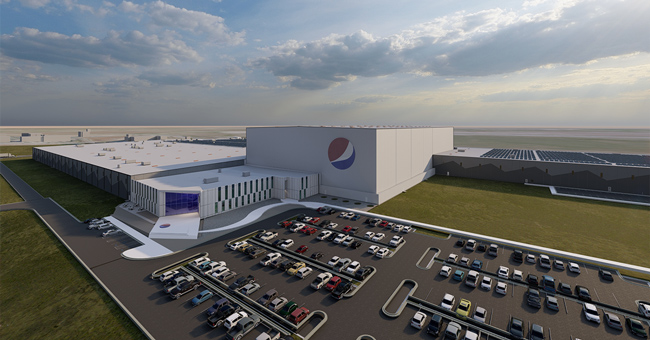A Gatorade pallet program is at the center of a complaint filed last month in New York State Supreme Court in which two major independent Pepsi bottlers and their subsidiaries accuse the company of undercutting their position after enforcing a switch to DSD last March.
According to a 52-page complaint filed on February 2, the plaintiffs – Admiral Beverage Corp. and its subsidiaries, and Pepsi-Cola Newburgh (d/b/a Pepsi-Cola of the Hudson Valley and Pepsi-Cola Bristol) – claim Pepsi pitched Gatorade’s March 2023 transition from warehouse to DSD distribution as a “~50MM case opportunity” for independent bottlers and promised to make “commercially reasonable efforts” to convert and retain customers, including Walmart and Kroger.
In exchange, bottlers gave up exclusivity rights for isotonics drinks in their portfolios, as well as certain Pepsi products.
But less than a year after it “encouraged Plaintiffs to invest tens of millions of dollars” to put Gatorade on its trucks, Pepsi announced its intention to service many of those same retailers – including Walmart and Kroger – through its Display Ready Pallet Program, offering retailers $35 per pallet, as part of a corporate-mandated cost-cutting strategy.
“Although Independent Bottlers will receive a flat payment for pallets delivered in their territories, the PepsiCo prebuilt pallets will almost certainly cannibalize space already allocated to Independent Bottlers to sell Gatorade products via DSD, thus reducing the volume and sales of Gatorade products via DSD,” the complaint stated.
“Meanwhile, the Independent Bottlers may incur the significant labor and other costs required to stock and maintain the visual appeal of the prebuilt displays. In short, the flat payments will not offset the loss of sales and significant costs Independent Bottlers, including Admiral and Pepsi-Cola Newburgh, will incur because of the Gatorade Pallet Program.”
Admiral’s estimated cost for transitioning to DSD – including property, warehouses, trucks, equipment and labor – is $30 million, of which more than $5 million has already been spent. The company is currently leasing six properties to accommodate Gatorade products while it expands some of its existing properties, per the documents. Pepsi-Cola Newburgh has invested $1.4 million so far, and will need to spend over $1 million more annually on labor to continue selling Gatorade.
Citing emails between executives, Pepsi-Cola Newburgh is also claiming that PepsiCo backed out of an agreement in which the bottler would allow Dunkin’ Donuts to receive bottle and can commissary delivery in exchange for PepsiCo waiving its requirements to sign certain agreements tied to the DSD transition, a contract package dubbed the “Bundle.” When Pepsi-Cola Newburgh subsequently tried to walk away from the deal, PepsiCo allegedly threatened to itself start distributing any of its new products in Newburgh’s territory.
The Plaintiffs are asking for PepsiCo to be enjoined from selling, promoting or distributing pre-made pallets of Gatorade products, as well as monetary damages arising from breach of contract.
